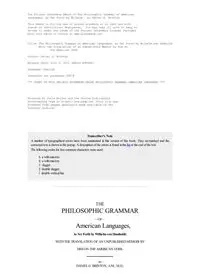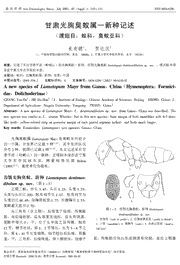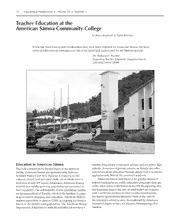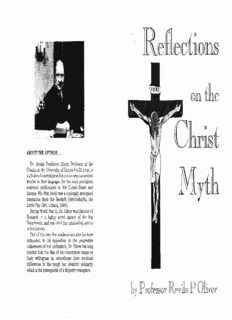
Preview Professor Revilo P Oliver
. . . ABOUT THE AUTHOR Dr. Revilo Pendleton Oliver, Professor of the Classics at the University of Illinois for 32 years, is a scholar of international distinction who has written articles in four languages for the most prestigious academic publications in the United States and Europe. His first book was a copio~slya nnotated translation from the Sanskrit (Mrcchakatikii, the Little Clay Cart, Urbana, 1938). During World War 11, Dr. Oliver was Director of Research in a highly secret hgency of the War Department, and was cited for outstanding service to his country. One of the very few academicians who has been outspoken in his opposition to the progressive defacement of our civilization, Dr. Oliver has long insisted that the fate of his countrymen hangs on their willingness to subordinate their doctrinal differences to the tough but idealistic solidarity which is the prerequisite of a Majority resurgence. P by- Professor Revilo Oliver Christianity is a fusion of two myths. The Jesus myth requires no explication. It is clear that the stories collected in the "New Testament" are versions of a folk-tale formed, like the legend of Robin Hood, by the accretion around a central figure of episodes in the careers of a number of minor figures. The Jesus of that legend was a composite formed from tales about Jesus ben Ananias,'Jesus ben Pandera,2t he agitator, whose name may have been Jesus, who led a party of his followers into Jerusalem during the celebration of the Passover and was well received by the populace, but soon suppressed, and Judas the Gaulanite'. And it is possible, of course, that there was an otherwise forgotten Jesus who also tried to start a Jewish revolt against civilized rule and paid the penalty. The composite Jesus was, of course, a would-be christ and interested only in his own barbarous people. The The Christ Myth stories in the "New Testament" have been embellished by Christians, and that is what is remarkable. Printed and published by the The Christ myth is puzzling, an historical problem that is still unsolved. In- Historical Review Press, deed, if considered a priorr as an historical phenomenon, it is astounding. The PO Box 62, Uckfield, Sussex, TN22 IZY, UK. Jesus of the composite legend was a would-be christ, who anticipates the basic doctrine of the Talmud, that Jews are a unique form of life, vastly superior to all ISBN: 0-906879-36-1 other peoples, who, at best, if totally submissive to God's People, may aspire to the status of dogs. He boasts that he brings not peace, but a sword, so he probably wanted to rouse the Jews scattered throughout the world as well as those in Pales- tine to start slaughtering the civilized peoples, as did his successors in the great Jewish Conspiracy of 117. Yet this Implacable enemy of the Aryans was trans- formed by the Christ myth into a god that Aryans worshipped! The Jews, naturally and, from their standpoint, reasonably, hate all Aryans, but they feel a specially intense hatred for Aryans who are so intelligent and manly that they resent being herded and fleeced by their Jewish shepherds and refuse to believe in the enormous racial superiority that entitles Jews to own the entire planet. When the Germans tried to have a country of their own, interna- tional Jewry sent against Germany their stupid British hounds and eventually their rabid American mastiffs, who obediently and foully murdered the German leaders to prove to the world that resistance to God's People is an unforgivable sin that is punished by torture and death. That we all know. Now, if, in the coming century, say by the year 2100, the Jews begin to vener- ate Hermann Goering or Alfred Rosenberg or Julius Streicher as their divinely inspired Saviour and worship him as a Son of God and an incarnation of their Yahweh, that would be astounding, wouldn't it? Yes, but not more incredible than the transformation of a Jewish christ into a Saviour of Aryans and a god. It is to solve this historical paradox that Nicholas Carter has written his new book, The Christ Myth.4 Mr. Carter will be remembered for his excellent book, The Jewish Encyclopaedia (12 vols. quarto; New York, Funk & Wagnalls, 1901- The Late Great Book, the BibleS in which he reached and enforced the conclusion 1906) admits (s.v. 'Hellenism') that "Alexander .. . and the first Ptolemies and that "the establishment of Christianity in the West represents one of the greatest Seleucids . . . treated their Jewish subjects with much benevolence. "9 tragedies that has ever befallen the human race." What Christians call the "Old Testament" (including books and parts of books He persuasively finds the key to the paradoxical enigma In the effect of Greek that are omitted in most Bibles), originally written in Hebrew and Aramaic,lo had cidlization on the barbarous Jews. It will be necessary, therefore, to begin with to be translated into Greek for the benefit of Jews who could not read Aramaic, the sixth century B.C. As we all know, Cyrus the Great, the founder of the Persian which had once been their native tongue." The result was the Septuagint, whtch Empire, showed great favor to the Jews, probably to recompense their work in takes its name from a typical Jewish forgery, the letter concocted in the name of subverting the Babylonian Empire and betraying the city of Babylon into his hands. Aristeas (supposedly a Greek who could not write really correct Greek), which The Jews so needed his protection that they flattered him by calling him their certifies that the Septuagint was directly inspired or rather dictated by Yah himself ~hristi,.~e. , a being divinely sent and inspired by Yah to save his people. Soon (his name may have been by that time Judaized by changing it to Yahweh).'' after 538 B.C., Cyrus rewarded them (as the British were to do much later) by Educated Jews, wishing to make their tribe respectable in the eyes of civilized giving them permission to take over for themselves a part of Palestine. Soon after men, followed their racial proclivity and invented sons of Abraham who had been they were established in Jerusalem, a contingent of wealthy Jews from Babylon companions of Hercules, and descendants of Isaac who had sailed with the undertook a drastic reformation of their tribal religion. They eliminated their Argonauts Later, growing bolder, they identified Moses with Musaeus, the mythical goddess and three other gods, and recognized Yah (or Ya'u), a god they had taken son of Orpheus (or of Linus, the myth~cali nventor of sustaltic music), who lived over from the Canaanites, as the patron god of their race.' long before Homer, wrote didactic verse and hymns, and, being a divinely gifted seer, like Tiresias, left a collection of oracular utterances. HELLENISM To a modern reader, this will seem to be mere trifling, but when Jews identi- The special protection of the Jews by Cyrus was continued by his successors until fied their Yahweh with Zeus, the consequences changed history. Somewhere along the Persian Empire was conquered by Alexander the Great. That was a truly ep- the line, Zeus was identified with the Zeus of Cleanthes' hymn, i.e., God in the ochal event. The entire Near and Middle East was transformed. The vast and Christian misuse of that word; he was the god of Stoic monotheism, also called incontestable superiority of the world's first rational civilization, made evident to Providence and the Mind of the Universe (animus mundi). That converted Yahweh all by its invincible military power, was apparent to all the diverse populations of from a tribal deity, who fought for h~sra ce and ,overcame the gods of other na- those lands. The Greeks built cities that were the focus of a truly great and rational tions, into the unique and supreme god of the universe. That was an arrogant culture. Everyone above the peasantry sedulously imitated Greek customs, in- claim that altered Jewish consciousness, and was maintained even by the Jews who cluding athletic contests and games. The conquered populations hastened to learn most resented civilization and returned to their primitive barbarism. as much Greek as they could, and Aramaic, the Semitic language that had been With even greater effrontery, educated Jews began to claim that one or an- the lingua franca of the Orient and used even by the Persians as the language of other aspect of civilization was of Jewish origin. They had learned the method of administration, became a vulgar and despised dialect, used only by the lowest and allegorical interpretation from the Stoics,13 and by outrageously twisting the texts most ignorant classes. of their sacred books (in Greek translation), they proved their point with the facil- Even the Jews, whose language was Aramaic (Hebrew was known only to the ity of a shyster lawyer. This impudent hoaxing reached its fullest development more learned members of the priesthood), were affected by their forced exposure with a Jewish "philosopher," Ari~tobulus,'w~h o, c. 150 B.C., brazenly claimed to civilization. Jews who had any capacity for assimilating or simulating culture that the philosophy of Aristotle and, indeed, the whole of Greek culture was de- learned Greek, and usually changed their Canaanite names for distinctively Greek rived from the "Old Testament"! He naturally forged some Greek verse, purport- names by a kind of fixed conversion; e.g., a man named Jesus called himself edly from early Greek poets, to prove some of his points. Jason, by allusion to the famous Argonaut, and Matthew became Menelaus, in A far more moderate and intelligent practitioner of the allegorical method was honor of the celebrated husband of Helen. The names of cities were likewise Philo Judaeus (c. 20 B.C.- c. A.D. 50), on whom Mr. Carter concentrates his changed; e.'g., Amorah became Ariopolis, and Akko became Ptolemai's. Even in attention. Although his enemies may have exaggerated when they claimed that he the Temple at Jerusalem the signs regulating admission to the sanctuary were did not know a word of Aramaic (to say nothing of Hebrew), it is true that all his written in Greek. This process of real or simulated conversion to civilization was knowledge of the Jews' holy books came from the Septuagint. He was a learned facilitated by the fact that the Jews continued to enjoy under Alexander and the man, and, if I am not mistaken, acquired a command of reek that no other Diadochi who succeeded him the privileges they had been given by the Persians. Jewish author ever attained.15 5 We especially remember Philo for his candid admission that the tale in the HEROIC FAILURE "Old Testament" about an armed conquest of Palestine led by Jesus (alias Joshua) It is the great virtue of Mr Carter's book that he forces us to consider critically a is preposterous, and that what must have happened is that the Canaanites, their Jewish and Christian generalization about the history of Judaea in the second minds muddled by old Yahweh, admitted the Jews to their country as eminently century B.C He makes us aware that it is highly probable that, besides the Letzim pious refugees and permitted the immigrants to organize their synagogues and mentioned above, who tried to salvage Judaism by forgery, hoaxes, and sciolistic flmrish until they were ready to take over the country of their enemies - for the distortions of evidence, there were educated and enlightened Jews who faced the Jews considered the foolish Canaanites as their enemies and entered Canaan in- problem candidly and saw that the only solution was to abandon Jewish claims to tending to kill or enslave their stupid hosts as soon as they had sufficiently pen- immeasurable racial superiority, to jettison the barbaric cult, and to adopt civili- etrated the fools' country American boobs will soon learn that the barbarians zation wholeheartedly. never change their tactics or their nature. The detailed history of this period is a Gordian knot, depending principally We should also remember Philo for his formulation of the 'One World" ho- on Josephus (Antiquitates) and the second book of Maccabees (which is found in kum that is now so widely used as sucker-bait for dim-witted Aryans. He affirmed some Christian Bibles); both were bitter enemies of the Hellenizing faction, but that the Divine Plan (h6yoc 6 B~ioqa) rranges the rise and fall of nations "to the end contradict each other and are also at variance with the few indications to be de- that the whole of our world should be as a single state, enjoying that best of consti- rived from trustworthy historical sources.20W hat is clear, however, is that, as a tutions, democracy. "I6 result of some one of the continual upheavals in Judaea, a Jew named Jesus, who Philo was a well-educated and learned man, admirably well versed in Greek had adopted a civilized name, Jason, became the high priest in Jerusalem, prob- literature and philosophy, and Mr. Carter rightly takes him as a model of ably in 173 B.C. although possibly several years earlier. He represented Letzim 'Hellenized' Jews, all of whom he lumps together as the Letzim. But we must who wanted to introduce Greek culture into Jerusalem, and he evidently cleared remember that he remained a Jew. You cannot read very far in Philo's rather an area in the city and founded what seems to have been a kind of Greek-style copious writings" without becoming aware of an alien mentality. He had, as I gymnasium, serving both for athletics (which orthodox Jews abominated) and as a have said, a good command of the noble language, but when he writes hhfpe~at,h e kind of open club in which educated men could meet for intelligent and often corresponding adjective, &hq0fi~6,-5 , and their derivatives, he does not mean what philosophical discussion (which the orthodox also abominated). the words mean in respectable Greek. To the rational Greek (Aryan) mind, truth is In 171 and for reasons which are not quite clear but may be related to family something that can and must be objectively determined: it denotes veracity as op- feuds, Jesus-Jason was succeeded by a man who may have been a relative and who posed to lying, facts as opposed to fancies, reality as opposed to lllusory appear- changed his name to Menelaus.?' He is the focus of Mr. Carter's cogent revision of ances. Truth is factual and must be determined by observation and reason. For the Jewish and Christian story which had never been effectually challenged. Philo, however, 'truth' is what he thlnks Yahweh said in the Scriptures he wrote and According to that story, Menelaus was a Jew so wicked that he became the what he therefore wants. 'Truth' for Philo is not what is, but what ought to be. It is instrument of the awful pagan king, Antiochus IV Epiphanes, who wanted to the Jewish religion, as he understands it, after revising it with his allegorical inter- persecute God's sweet little lambs and suppress worship of the One True God pretations. It is Faith and therefore irrational. There can be no greater antithesis (beastly old Yahweh). That is patently absurd. Although it is true that the Seleucids, than between the Greeks' rational and objective truth and the "truth of unreason," descendants of one of Alexander's generals, were not only cultivated men them- as Bertrand Russell aptly termed faith in religions, fictions about supernatural be- selves, but doubtless perceived the value of a dominant civilization in promoting ings that soothe and comfort weaklings who are afraid to contemplate the grim some sort of unity among their multi-rack1 subjects, Antiochus, as a prudent world of reality. ruler, was primarily interested in finding a way to end the perpetual turmoil in Philo was really uninterested in truth as the Greeks and all rational men con- Judaea, where normal communications along the major trade routes were often ceive it. Since Philo constantly tries to equate his religion to Stoici~rn,y'~ou made almost impossible because the sweet little lambs were perpetually rioting should particularly notice that no Stoic would ever have countenanced his faith in and killing one another, using religious pretexts to justify a perpetual succession the "truth of unreason." (See the Appendix on Stoicism). of petty but destructive civil wars. And the attribution of wicked "pagan" pur- Philo and all of the Lerzim we have mentioned thus far differ radically from poses to Antiochus becomes absurd when the enemies of Menelaus charge that he other Letzim, whom we must now consider. was so corrupt that he bought the support of Antiochus with an enormous bribe. That sufficiently shows who took the initiative and vindicates Menelaus's sincerity. Mr. Carter's work reminds us that we have no reason to doubt that Menelaus was a cultivated and highly intelligent Jew who saw that the only remedy for contagious fever, at Gabae, in or near what is now Afghanistan. barbarism is civilization, and that the only way to civilize the Jews was to abolish Lysias, Antiochus's governor of Syria, was evidently a mediocre man. When their disgusting superstition. That attitude won him the sympathy of Antiochus he failed to suppress the bandits, he had the foolish idea that he could end his and a measure of support that was soon greatly increased. troubles by forcing on Menelaus a compromise. The bandits wcre given amnesty; Antiochus was at war with Ptolemaic Egypt and invaded that country. In 168 the Hasmonaeans were admitted to the city; the traditional rites of Yahweh were a rumour reached Palestine that Antiochus had been defeated and killed. Menelaus largely restored with only an addition to content the Hellenizers; and, of course, was expelled by Jesus-Jason and his faction, who had been engaged in treasonable the situation became more intolerable than ever, since the Hasmonaeans used intrigues with the Egyptians, in preparation for an Egyptian occupation of Jerusa- their new position for aggression on the civilized minority everywhere. lem. What had really happened, however, was that Antiochus had won what should When Lysias finally saw the consequences of his folly, he took the requisite have been a decisive victory, but had been prevented from following it up by the action. He mobilized his army, occupied Jerusalem and other cities, and restored intervention of an envoy from the Roman Senate, Popillius Laenas, who, in effect, order.2' He would probably have solved the Jewish problem permanently, if the made Egypt a Roman pr~tectorate.~~ barbarian rabble had not again been saved by a perverse fate. Antiochus's heir was As soon as the truth was known, Jason fled and Menelaus was restored to his a boy of ten,24w ho had been left in the care of Lysias, but Antiochus, shortly priestly dignity. We should note, however, that both Hellenizers had large popular before his death, discontented with Lysias's blundering, named one his friends, followings. Philip, the regent for the boy and governor of Syria. The news of Philip's advent The net effect of this was to make Antiochus, who had been humiliated by the reached Lysias in Jerusalem and, in a panic, he negotiated another shameful com- Romans and prevented from ending the menace to his langdom from Egypt, will- promise with the Hasmonaeans and their rabble, sacrificing even Menelaus to ing to use his army to support Menelaus, who, officially the high priest of the their hatred, and hastened home in a vain attempt to retain his governorship and Jews, proceeded to abolish all the innumerable and zulgar regulations of "the take the regency for himself. Law, " the superstition about the Sabbath, and, above all, the savage sexual muti- Thus ended one of the great tragedies of history with a catastrophe from which lation by whlch the Jews dtfferentiated themselves physically from civilized man- we still suffer today.25 kind. Menelaus was undoubtedly supported by a sizeable minority of educated We need not linger over the intricate history of what followed. The Hasmonaeans Jews, many or most of whom engaged surgeons to uncircumcize them. ruled Judaea, profited from the weakening of the Seleucid Empire to make their He is a man whom we should honor and whose failure we must regret. country independent, and occupied themselves with wars of aggression against It is hard to say in what proportion piety and political ambition dominated the their neighbours to increase the territory under their rule.26 It is noteworthy that wealthy Jewish clan who were descended from a man whose name, passing through they soon assumed Greek names, from Hyrcanus and Aristobulus to the last of Greek, was Hasmonaeus (Asamonaeus in some sources). A member of this clan the line, Antiochus." murdered a priest who was about to perform a sacrifice in accordance with the The surviving Hellenizers either escaped from Judaea or became Sadducees, new rule, and fled to the wilderness, where he organized gangs of bandits who who observed the Jews' "Law," at least outwardly, but intelligently refused to flourished by raiding towns, slaying educated Jews, and grabbing their property. believe in immortal spooks or the other superstitions dear to the Pharisees, who They won the support of the lower classes, already jealous of their betters, and, as eventually attained complete dominion over the Jews. you know, it is almost impossible to suppress such banditry without helicopters. We have now sketched, as summarily as I could, the antecedents requisite for Antiochus' governor, Lysias, underestimated the difficulty and made ineffectual an understanding of our problem. attempts to suppress them, which the Jewish writers have naturally magnified into great victories for Yahweh's people. These Hasmonaeans, now more commonly known as Maccabees from the epithet given them, derived from an Aramaic word THE NEW AGE meaning 'hammer, mace,' were for a considerable time merely outlaws and pests. We have also reached the beginning of the historical era established by a Scythian There can be no doubt but that Antiochus was now prepared to give Menelaus monk who had come to Rome, Dionysius Exiguus, c. A.D. 540. According to his full support, and there isSnod oubt but that no amount of barbarous fanaticism calculations, the supposed birth of Jesus marked the beginning of the First Cen- could have prevailed against an army that was still organized with Macedonian tury in the era now in common use. 28 tactics and discipline. The Jewish problem would have been solved forever if Mr Carter d~sposeso f that century correctly: "There were no ~hristians, Antiochus had not been distracted by the need to protect his eastern borders against either Gentile or Jew~sh,l iving during the first century."29 the Parthians, and not even then, if he had not died, evidently from poison or a In fact, we have no secure traces of Christians before 135, the year in which 8 9 the last christ of any importance, Shimeon ben Kosiba, commonly called Bar-Kokhba, letters attributed to him to attest their orthodoxy And a book included in the "New was ~uppressedH.~is~ f ailure conclusively proved to intelligent Jews that while their Testament," Acts (Acta Apostolorum), contains stories about itinerant evangelists god might help them treacherously attack unsuspecting goyim and torture them to which, though displaced chronologically, may correspond roughly to part of the death, old Yahweh always skedaddled when the Roman legions moved in. Whether promotion. But that promotion obviously required organization - and money. We it is more than a coincidence that, so far as we know, the promotion of Christianity are asked to suppose that hordes of proletarians and a few eccentrics flocked to the began soon after 135, is anybody's guess "glad tidings" because they were so charming. That is fiction. Millions of dollars Christianity presupposes the Christ Myth, which must, therefore, have been have been spent to promote L. Ron Hubbard's invention, Scientology, but despite invented shortly after 135, if not before. What can have been the origin of that all the facilities for almost world-wide propaganda provided by the press, radio, and amazing myth? It cannot have been derived from any Jewish sect, least of all, rapid travel, the cult still has only a small and scattered band of converts. from that of the Es~enes.~W' hile it is likely that at least one of the figures that Yet it is not more alien to the general tenor of American society or more dissi- contributed to the composite hero of the Jesus Myth was an Essene, who de- dent from the beliefs of all the current religious sects than the cult of a Jewish christ nounced the Pbarisees, the Essenes, as Mr. Carter has shown, were fanatically was alien to the tenor of society in every part of the Roman Empire or more strongly and exclusively Jewish, and would no more have thought of saving the souls (if opposed to the religion and superstition of every region in it. Even the Christian any) of goyim than they would have banqueted on roast pig. evangelists, who can use the boob-tubes to rake in hundreds of millions of dollars The very foundation of the Christ Myth was borrowed from India. It created a from superstitious suckers. have to be lavishly financed before they can begin op- christ who was modeled on Krishna (Krsna) who was the eighth avatar of Vishnu erations .?? (Visnu). This presupposes the Hindu doctrine that gods may become incarnate as The promotion of Christianity must have required, as I have said, a fairly mortals to act as Saviours of mankind - a notion that every religious Jew would large organization and ample resources. But cui bono? Who stood to profit in one have rejected with horror. The Hindu concept also includes metempsychosis, and way or another from that effort to impose an alien superstition on the population pious Jews would have been made furious by a suggestion that men have souls that of the Roman Empire? survive death by being reincarnated As shown by the presence of Magi at the Mr. Carter has the first plausible answer that I have seen: the Letzim, that is, birth of the non-Jewish christ, there was also an influence of the Zoroastrian cult, the Jews living in their colonies outside Judaea and in Hellenistic cities. This is which by that time had assimilated both astrology and the notion that a Saviour certainly an adequate and attractive explanation. We must, I think, accept it. (Saojlant) would come to deliver the world from evil; and, as everyone knows, When, however, we try to determine the purposes of those Letzim, we must the shepherds who witnessed the Nativity of Jesus were copies of the shepherds choose between two almost antithetical theories. who witnessed the earthly birth of the Zoroastrian Son of God, Mithra. A god who could be concerned with anyone but the Chosen was utterly repugnant to the ONE HYPOTHESIS Jewish mind and a christ who could interest himself in goyim was an abomination Relations between Jews and goyim outside Judaea have always been strained and as well as an impossibility. precarious, except when one has attained such complete dominance as to force the The Christ Myth was obviously invented to create a christ (necessarily Jew- other into hypocritical submission. The Jews, in their scattered colonies through- ish) who could be made acceptable to non-Jews, and the Jesus Myth was crudely out the civilized world, needed to ensure themselves against resentment, and this amended and refashioned for that purpose. need became urgent after the decisive failure to take over the world by force with That brings us to another puzzle. Once devised, the Christ Myth spread with the putative assistance of a Yahweh who always ran when there was danger. amazing rapidity. Thirty years after 135 we find little groups of Christians all over In the simplest terms, making Judaism respectable in the eyes of their "pa- the landscape, and by the end of the Second Century they are divided into large gan" neighbors was no longer a matter of inventing sons of Abraham who had sects, furiously damning one another to Hell, scribbling innumerable gospels and been companions of Hercules or of forging letters from a Lacedaemonian king ro forged documents32, and even able to exert some influence in the tolerant Roman prove that the Spartans were really a "lost tribe" of Jews. What could be more Empire and to concoct lurid tales about the persecutions which they, like the Jews, effective than a christ sent by Yahweh to save the souls of Gentiles? liked to pretend they had suffered. That rapid spread of a strange superstition And if the stupid goyim could be made to believe that a Jewish god was the required intensive and expensive promotion. animus mundi of the Stoic monotheism, and that he had sent his Jewish Son into Christian tradition speaks of a Jew named Saul (Caovh),w ho must have been in the world to bring Salvation to the lesser breeds "outside the Law," this notion some way regarded as an innovator, since many of the Christian sects produced could be made the basis of a theology that would sap the virility and rationality of the more intelligent goyim and destroy their ability to detect and resent the depre- racially poisonous. dations of their parasites and their own gradual descent Into slavery. The new Marcion's Church did attract a numerous following and it may have been, for religion, which would, of course, have to be distinguished sharply from the racial a time, the largest Christian sect, with congregations throughout the Empire, but exclusiveness and arrogance of the Judaism with which everyone was then famil- it was the target of the most bitter animosity of the well-financed gang known as iar,could be made an hallucinatory drug, an enslaving opiate, that would eventu- Fathers of the Church, who were determined to keep the "Old Testament" as the ally make its addicts helpless sheep, to be herded for the profit of their shepherds. basis of their cult. The Marcionist Churches declined in the Third and Fourth If the inventors of Christianity did not envisage this use of it with a foresight Centuries, perhaps because they were not sufficiently fanatical and skilled in in- and cunning that may seem superhuman, they must have realized in subsequent trigue, but they survived even after the Fathers of the Church were at last able to centuries what a marvelous weapon they had inadvertently forged. This is a dras- start persecuting with the police powers of the captive state at their disposal.35 tic hypothesis and will seem novel and implausible to many, but it can be sup- Why the Fathers should have chosen to burden their cult with the onerous ported by one datum for which ~t would be hard to suggest another explanation. and malodorous bundle of fictions of the "Old Testament", which blatantly con- Once Christianity was launched, the Jews were evidently determined to retain tradicted the very doctrine they were peddling, is almost inexplicable, except on control of it the assumption that it was made profitable for them And we must not forget that, That is the most reasonable explanation of the eventual failure of the Marcionist wlth very few exceptions, we really do not know which early Christian theolo- Church, which was a form of Christianity far more plausible than the doctrine that gians were "converted" Jews or stooges for the Jews, like the contemptible hire- finally triumphed. lings who now misgovern Germany. Marcion was a wealthy shipowner at Sinope, now the Turkish town of Sinop So much for one interpretation of the admittedly fragmentary evidence (as on the south shore of the Black Sea, but then the largest port and commercial distinct from inferences). center east of Byzantium. Sinope was founded as a Greek colony and long re- mained a Greek city, but there had been a continuous influx of other peoples. We AN ALTERNATIVE have no information about Marcion's ancestors. When Christian propaganda reached him, he saw, as all reasonable men must, Mr. Carter presents a radically different theory about the origins of Christianity that the ferocious, vindictive, and cruel god of the "Old Testament" was utterly sometime in the First Century. incompatible with the god of mercy and love preconized by Pauline Christianity, He takes his departure from the Stephen who appears in Acts, 6,5 -7,60, and and he accordingly decided that Yahweh was only the Demiurge, creator of the is mentioned occasionally in subsequent chapters. The man's Greek name does material world, but inferior to the good and supreme god who sent his Son (an not prove that he was a Hellenistic Jew, and we are told that he "did great wonders avatar of himself) to save mankind from the Demi~rge.~~ and miracles (daza ~ aoiq p~iap ~ydrha)a mong the people," which sounds as Jesus made his appearance in the guise of a man of about thirty, but the though he were just another of the goerae who swarmed through Asia Minor at that ignorant apostles mistook him for a Jewish christ, and the Jews showed their time.'b irremediable perversity by crucifying a simulacrum of him (of course, a god could In Acts, Stephen delivers a summary of the Jewish tradition about Abraham and not be killed). He had, however, been recognized by Paul. Marcion had a version his successors. and then upbraids the orthodox for their rejection of Jesus. His of the gospel attributed to "a man from Lucania" (Greek Aom&~L, atin Lucanus, speech receives divine approval, for, looking up through a rift in the atmosphere, he commonly 'Luke' in English, as though it were a man's name), and a collection of sees God with Jesus at his right hand. The Sanhedrin, however, condemn himand letters attributed to Paul that justified Marcion's theology. He may have had other the mob stones him, a particularly brutal form of killing, which they enjoyed on the holy books, and he wrote a work, Antitheses, conclusively proving that Yahweh was pretense that it did not involve bloodshed. the very antithesis of the Pauline god, and that the "Old Testament" was incompat- Mr. Carter dismisses the story in Acts as a Christian concoction. He believes ible with Christianity. that Stephen and his companions (all of whom bear Greek names) were members He went to Rome, then the capital'of the civilized world, but found Judaizing of the "New Letzim," who had assimilated the Stoic doctrine with its emphasis on Christians already established there. He founded his own church (c. 150), which all humanity and wished to bring Judaism into accord with it, insisting that "the naturally appealed to persons susceptible to the new religion but not incapable of One God of the Universe is everybody's God." And he composes (p. 79) the thought. His was a comparatively innocuous form of Christianity - one that the speech that Stephen would have uttered, if he could, before he finally died. It is late Dr. Hamblin, an erudite and highly intelligent man, tried to revive in our time worthy of Epictetus. to provide for the populace a form of Christianity that was not culturally and Saul-Paul was a man who first approved the murder of Stephen, but reconsid- 12 13 ered and joined the "New Letzim," whose doctrines, a fusion of Judaism with Letzim" - necessarily a tiny minority, as Mr. Carter points out - did exist and Stoicism, Mr. Carter adumbrates with the proviso that "the Mystic Gospel of Jew- flourish with impunity in Graeco-Roman territory so long as they kept themselves ish Hellenists" cannot be reconstructed in detail. "We cannot measure the complex- out of the power of the Jewish priesthood. ity of the involvement of the protagonists the degree, that is, to which the Hellenic I cannot here do justice to the argument that occupies a large part of this - Jews may have tried to fuse Greek and Jewish speculations. For the purpose of this book, and I must limit myself to noticing his conclusion that "Beginning around study it is enough to conclude that Gentile ethics were the driving force behind the eighteen hundred years ago, a cabal of power-hungry Gentile churchmen labored activities of the Letzim. " to bring forth upon the land of western Asia a mystical system destined to crucify These Letzim may have come to regard Stephen as a messianic figure, thus the whole of the Western world for centuries to come." resulting in "the transformation of the martyred Stephen into both a JESUS37a nd This cabal saw an opportunity in the fact that "there was no place in the a CHRIST in the minds of his worshipers, by at least the turn of the second significant Gentile religions, or in Judaism, for the common people, or for the century. " lowest of the low, the Am-ha-aretz, as the Judaeans characterized those who worked There was really no reason why the Letzim should not have sponsored such a with their hands . . . or for slaves . . . or for the diseased, the crippled, the feeble novel cult. For one thing, the real centre of Jewish power was not in Judaea, but in and the old . . . or for the blind and dumb." There was therefore a huge market for Babylon, which, except for a very brief time, was outside the borders of the Graeco- "a salvation religion that might appeal to the masses." Roman world, which was increasingly centered in Rome. The greater part of the "The scheme they [the cabal] decided upon was both shrewd and unique. wealthy Jewish colony in Babylon in 538 B.C. had never thought of migrating to They would fuse Gentile and Jewish religious speculations by assimilating a Jew- Judaea, and their opulent descendants continued to flourish in the city.I8 For an- ish messianic figure [Stephen] to the savior gods of Asia; they would validate his other, despite what the Jews want us to believe today, Judaism in the First Century existence with 'prophecies' culled from the ancient and sacred writings of the was not a unified set of doctrines, but included many groups of Jews who were Israelites; and they would promise to open the temples of holiness to everyone, heretics according to the standards of the Pharisees, but whom the rabbinate dared including the unholy - thereby providing the masses with a broader-based creed not up press.'^ And finally, archaeological excavations have shown that opulent than any existing in western Asia." synagogues in Asia outside Judaea took their orthodoxy lightly, ignoring even the He discusses the way in which the conspirators selected from various my- famous injunction about not worshiping other deities in the presence of Yahweh. thologies the elements of the religion they were concocting, and the points on If Greek gods were not worshiped in those synagogues, and there is at least one which they had to decide and about which they quarreled, thus precipitating the example of a prayer to Helios, composed in Greek but written in the Hebrew wild squabbles of the ninety Christian sects that were in existence in the Fourth alphabet, they were at least sufficiently venerated to be given iconic representa- Century. And he reviews summarily the Christians' unparalleled achievement as tion. habitual Liars for the Lord and incorrigible forgers." Everyone was astonished when the excavations at Dura-Europos reached the Mr. Carter therefore vindicates the Jews from any imputation of guilt, and remains of a monumental Third-Century synagogue in which at least two Greek indicts the presumably non-Jewish Christians: "The Catholic Christians are guilty deities were portrayed on the walls. More recently and more astonishingly, a syna- of committing the moral crime of appropriating the sacred writings of another gogue built, regardless of cost, in the Fourth Century at Tiberias, on the western people in order to validate the existence of their divine hero; they forged and shore of the Sea of Galilee and hence in Judaea itself, had a finely-wrought central otherwise fabricated the entire literature of their church in order to provide an mosaic, in which Helios is encircled by the zodiac, with its constellations repre- historical foundation for their faith; and along with their fellow Christians (Prot- sented by the customary figures.@ Three of the four comers of the mosaic are estants, Episcopalians, er al.) they have corrupted the minds of countless millions preserved. In one comer is the head of a woman wearing a radiant crown (hence a over the centuries." goddess), holding a sickle; in the opposite corner a maiden with the white head- You may not accept Mr. Carter's thesis, but you must accept his demonstra- dress of a virgin is pouring water from an ewer; in the third comer, a woman, tion that the authors or redactors of the tales about Jesus in the "New Testament" perhaps garlanded, seems to be holding up a bowl of some fruit.41 had only a superficial knowledge of conditions in Judaea at the long past time at Finally, we may note that some scholars believe that "Hellenistic Jews" were which the fictitious events were supposed to take place. the creators of Gnosticism as a Jewish heresy from which the Christian Gnosti- cism was derived.42 We have therefore no reason to doubt the possibility that a group of "New The next Stoic of any importance was also a man of little culture. Cleanthes was Appendix a native of Assos, a town in the Troad, opposite the isle of Lesbos, now the Turkish The most important fact about Stoicism is that it was not a product of the Greek town of Behra. The town was a Greek foundation, and it is likely that Cleanthes was mind and was therefore an alien doctrine foisted onto the Aryan peoples of at least partly a Greek. but his father must have been poor, for he became a profes- Antiquity. A' sional boxer, until, evidently down on his luck, he came to Athens with the equiva- Stoicism was founded in the last years of the fourth century B.C. by Zeno, a lent of four present-day dollars in his pocket. He attached himself to Zeno, and Semite ('Phoenician'), who was a native of Citium on the eastern shore of the supported himself by serving as a porter during the day and watering the plants in island of Cyprus. He had a very swarthy complexion and an ungainly body, squat, gardens at night. He is remembered for his famous Hymn to Zeus, one of the disproportionately obese in places, and flabby. Since Jews often took cover as noblest prayers ever addressed to a deity. Zeus is the UnivGrsal Mind, but yet a 'Phoenicians' or 'Syrians,' it is not impossible that he was a Jew.A2 personal god, whom Cleanthes exhorts "Lead me on," promising to follow will- He was a merchant engaged in the export trade, and when he was more than ingly whithersoever the god leads, but adding that if he were unwilling, it would thirty years of age, he brought a cargo of dye-stuffs to Greece, but was ruined make no difference, for he would be compelled to follow. Zeus thus becomes des- when his ship was wrecked in or near the Piraeus, the harbor of Athens. He tiny, and the idea is restated in Seneca's oft-quoted line, Ducunt fara volenrem, walked to the city, where he listened to the lectures of philosophers, doubtless nolentem rmhunt, with which, by the way, Spengler appropriately concluded his trying to become fluent in Greek, a language which he seems to have spoken with Untergang des Abendlandes. a heavy accent and of which he evidently knew only enough for bargaining in Chrysippus was a native of Soli in Cilicia, a city of which the ruins were commercial transactions. plundered to build the modem Turkish town of Mersin. Soli was a Greek founda- Zeno soon decided to become a philosopher himself and impudently sug- tion, but its inhabitants so deteriorated that their many errors in Greek gave us the gested that he was the new Plato by giving to his book (probably written with the word 'solecism.' He is said to have become a long-distance runner, evidently as a help of someone at home in Greek) the title of Plato's most famous work, IIohtzeia professional, which suggests that he, like Cleanthes, came from a low-class and (Latin, De republica, whence English 'The Republic,' meaning 'Concerning the impoverished family. Coming to Athens after some reverse of fortune, he took constitution of an independent state,' without implying any particular form of gov- over the leadership of Stoicism, which had become a recognized philosophy, but ernment). The later Stoics tried very hard to sweep this book under the rug and then he drastically revised it, discarding most of the teachings of Zeno and Cleanthes nail the rug down, but a description of its contents has come down to us. and elaborating in their stead an elaborate system of dialectics, which he ex- Zeno's book was pure Communism - not the practical Communism of Lenin pounded in a series of seventy-five books. all now lost. He was the real creator of and Stalin, but the Utopian communism that was so successfully used as sucker- subsequent Stoicism. He evidently prospered from the philosophy, for it is re- bait in the later Nineteenth Century and was scarcely distinguished from anar- corded as remarkable that he was content with one slave girl as a concubine. chism before Marx's quarrel with Bakunin, which promised that after the Revolu- I have thought it worthwhile to insist, as most writers on Stoicism do not, on tion the state would "wither away" and mankind would become one glorious mass the plebeian, lower-class, and mostly alien origins of the philosophy. As it at- of raceless proletarians. We do not know whether Zeno candidly faced the prob- tained some popularity, there were many Stoics, but almost all of them probably lem of how a nationless and raceless world was to be created and admitted that it had little or no Greek blood, some coming from such remote places as Seleucia would be necessary to slaughter the better part of every civilized society, but he and Babylon. The philosophy was a product of Hellenistic Asia, and of the scores taught that men would somehow become so reasonable that states, governments, who attained some distinction as Stoic philosophers, we cannot find one whom we courts, police, religion, money, private property, and marriage would be abol- can recognize as probably of respectable Greek ancestry until we come to Panaetius ished, and the world would be filled with a mass of raceless proletarians, all of Rhodes. Unlike Epicureanism and the New Academy, which were philosophic cuddling one another, freely exchanging the products of their labor, and having all products of the Greek mind and expounded by Greeks, Stoicism was an imported women in common.A3 and essentially Asiatic doctrine, and, before Panaetius, appealed chiefly to non- This absurd farrago apparently found some response in the demoralized soci- Aryan aliens and hybrids. ety of Athens, racked by economic and political crises, familiar with all the vices Pdnaetius (c. 185-109 B.C.) made Stoicism respectable and partly naturalized of democracy, and accustomed to romantically unrealistic social theories.A4B ut it. The scion of a Greek family at Rhodes, at Athens he studied under the head of after Stoicism became respectable and accepted by the upper classes, it was a the Stoic school, a Semite (Jew?) known as Diogenes of Babylon, but he was perennial embarrassment to Stoics, who did not want to be reminded of their strongly influenced by the more reasonable works of Aristotle. Going to Rome, he Semitic founder's folly. joined the circle of cultivated and young Romans around "the younger Scipio" (P. Stoics were saved from sentimental slobber about "the brotherhood of man" by the Cornelius Scipio Aemilianus, Africanus, Numantinus), whose intimate friend and next proposition. guest he became, accompanying him on his travels. Panaetius had the good sense (2) Since all things happen "according to Nature' (which is controlled by the to neglect the formidable dialectics of the Stoic school, a chain of rigidly logical Universal Mind), there can be no evil or injustice in the world. Whatever seems deductions from false premises, and to adapt Stoic ethics to the creed of the Ro- unjust or wrong to us is only part of a whole which we do not see and conforms to man aristocracy, with its insistence on duty and patriotism He could thus show a purpose we cannot comprehend. The lungs or liver, considered by themselves, that the heroes of the early Roman republic, celebrated for their stoicism (in the are ugly, but they may form necessary parts of a beautiful woman or wise man. modem sense of that word) had really been Stoics without knowing it. After Scipio (3) Good and evil, pain and pleasure, are therefore only in the mind, and what was murdered in 129, Panaetius went to Athens and became head of the Stoic makes the difference 1s your attitude toward events: it would be wrong as well as school. His treatise on duty (IT&pi zou ~u0fi~ovzocisJ paraphrased in the first two futile to resist the Divine Plan, no matter what it ordains for you. The only impor- books of Cicero's De oficiis, but his other works are lost, except for a few frag- tant thing is to maintain your moral integrity, and so long as you do that, events ments. His revision of Stoicism was continued by his distinguished pupil, have no power over you. Thus a wise man, conscious of his moral integrity, would Posidonius. A5 be perfectly happy, even if he were being boiled in oil. (I am sure that many It is easy to see why Stoicism, which Panaetius had endowed with the great intelligent men must have thought of popping a declaiming Stoic into a pot to prestige of the Roman aristocracy, became established as a major philosophy. ascertain whether the boiling oil would alter his opinion, but the experiment seems And it is easy to see what commended it to Romans and statesmen everywhere. I never to have been performed.) have often commented on the last paragraph of Cicero's De natura deorum, in There is much truth in the observation made by Professor Gilbert Murray in which Cicero, the statesman, overrules Cicero, the philosopher, with a raison his well-known Five Stages of Greek Religlon (3d ed., Boston, Beacon Press, d'etat. Of the three major philosophic systems, Stoicism was the only one that 1951; reprinted, New York, Doubleday, 1955). Reporting the anecdote that an enjoined patriotism and political action on men who had responsible positions in impressionable Greek, who had attended lectures by the Aristotelians and then society. The Epicureans were interested only in the content and happiness of indi- heard the Stoics, said that his experience was like turning from men to gods, viduals, and they specifically counseled abstention from politics: their most fa- Murray remarks: "It was really turning from Greeks to Semites, from philosophy mous maxim was h60~P th(~u<('l ive obscurely,' or 'avoid attracting public atten- to religion. " tion,' or 'stay out of the limelight').A6 That criticism may make you uneasy. I understand. We all respect Stoicism The New Academy, founded by Carneades (214-128), who revised the radical because it was endowed with a glamorous prestige by the great men whose creed scepticism of Arcesilaus, was philosophically the finest product of the Greek mind,A7 it was. We are Aryans, and by a racial imperative inherent in our blood, far stronger and was concerned with elaborating what is now known as the scientific method than ratiocination, we admire heroism and fortitude. Stoicism was in practice the and establishing a valid epistemology. Its cold rationality and keen criticism thor- creed of Cato of Utica and many another Roman aristocrat who lived bravely and oughly demolished the whole system of Stoicism, reducing it to the status of a died proudly, meeting his fate with unflinching resolution. We instinctively pay religion. Like all true scholars and scientists, the members of the New Academy homage to such men, and we venerate even more women of exemplary courage, regarded politics, even political philosophy, as rather vulgar and tedious, an inter- like Arria, the devoted wife of A. Caecina Paetus ("Paete, non dolet.") Panaetius est in merely contemporary and ephemeral matters that are trivial in comparison did make of an originally Semitic doctrine a creed that includes much that was with the eternal truths of nature and human history. consonant with the spirit and mentality of our race. The elements of Stoic doctrine which I think you should particularly notice But much as we admire great Romans, we must remember that, as Gilbert are : Murray remarked, Stoicism retained from its origins a latent fanaticism and re- (1) The Stoics claimed to consider only the observed realities of the physical ligiosity, professing to offer a kind of Salvation to unhappy mankind. Despite its world and to reject all superstitions about the supernatural, but they began by ostentatious appeal to reason, it was a kind of evangelism "whose professions assuming that the universe (which, remember, was for them the earth with its dazzled the reason." And it was fundamentally irrational when, for example, it appurtenances, the sun, moon, and stars that circled about it), was single living claimed to deduce from Nature an asceticism that was inhuman, limiting sexual organism of which the animus mundi'was the brain. It followed, therefore, that we intercourse to the begetting of offspring. And it could too readily be turned into are all parts of that organism and so members of the same family and essentially poisonous slop about "One World" and "brotherhood." Although it was the creed equal, with an obligation to help one another, especially the unfortunateA8.B ut the of heroes, we cannot but feel that there was in it something sickly and'deformed. It was, for our race, an intellectual disaster. 19
Description:The list of books you might like

Credence

Corrupt (Devil's Night #1)

Haunting Adeline

As Good as Dead
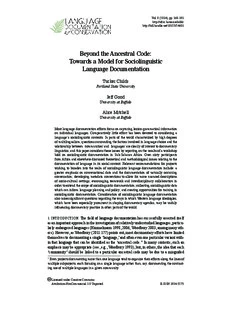
Beyond the Ancestral Code
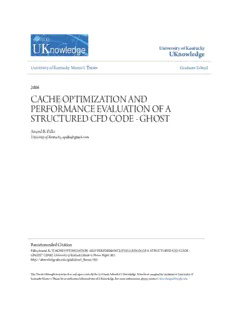
cache optimization and performance evaluation of a structured cfd code
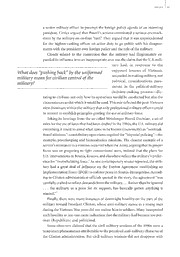
DTIC ADA519804: Rumsfeld, the Generals, and the State of U.S. Civil-Military Relations
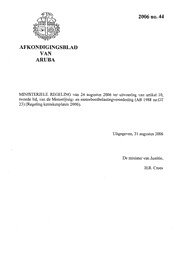
Afkondigingsblad van Aruba 2006 no. 44

Masters in Digital Marketing
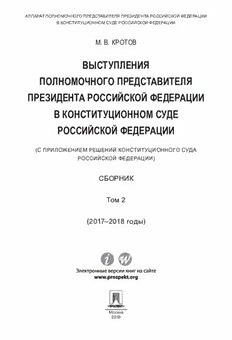
Выступления полномочного представителя Президента РФ в Конституционном Суде Российской Федерации. 2015–2018 годы. Сборник. Том 2. 2017–2018 годы

Bétons de granulats de bois
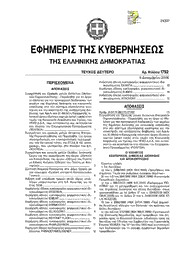
Greek Government Gazette: Part 2, 2006 no. 1792
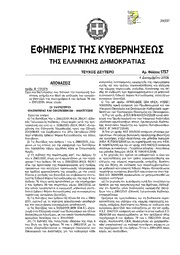
Greek Government Gazette: Part 2, 2006 no. 1757
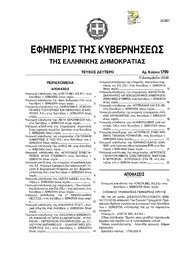
Greek Government Gazette: Part 2, 2006 no. 1799
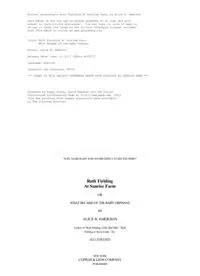
Ruth Fielding at Sunrise Farm
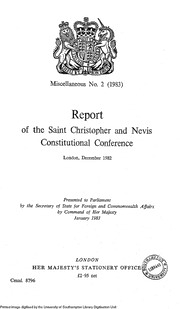
op1278241-1001
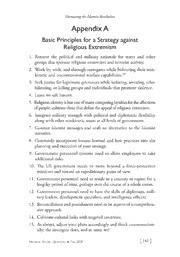
DTIC ADA508750: Harnessing the Islamist Revolution: A Strategy to Win the War against Religious Extremism
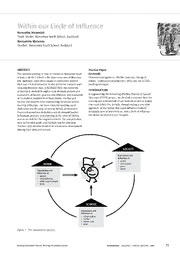
ERIC EJ914600: Within Our Circle of Influence
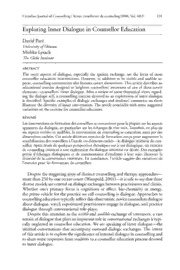
ERIC EJ739915: Exploring Inner Dialogue in Counsellor Education
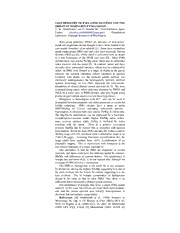
Geochemistry of Pallasite Olivines and the Origin of Main-Group Pallasites
